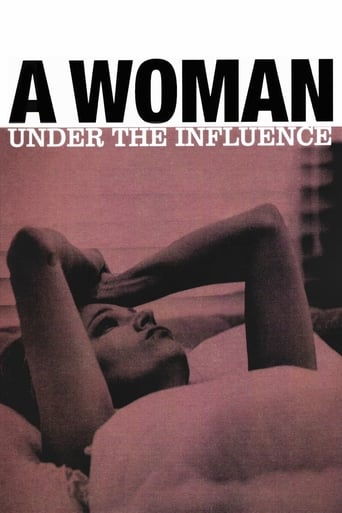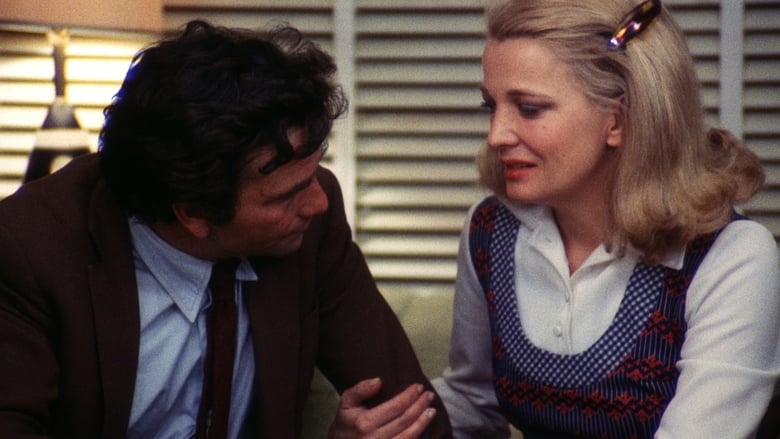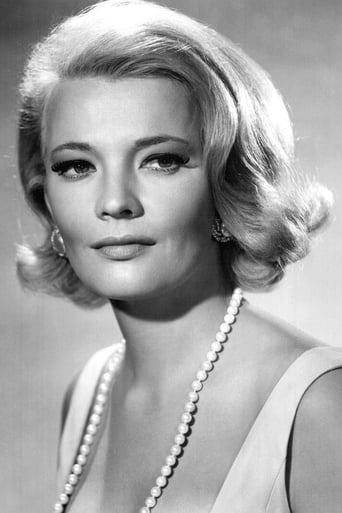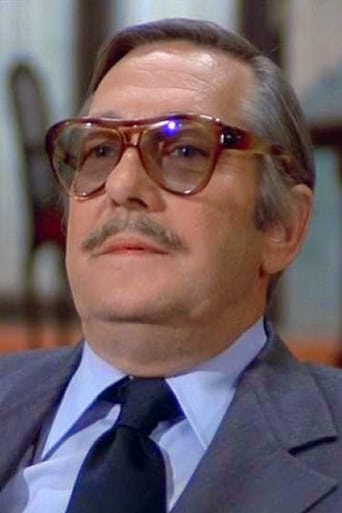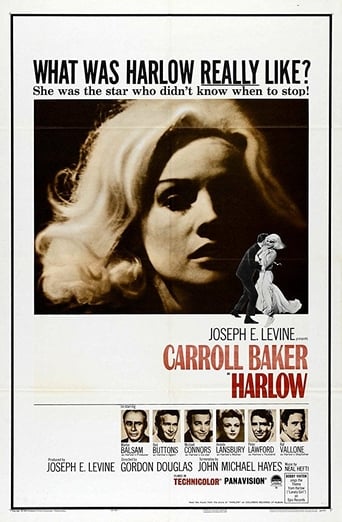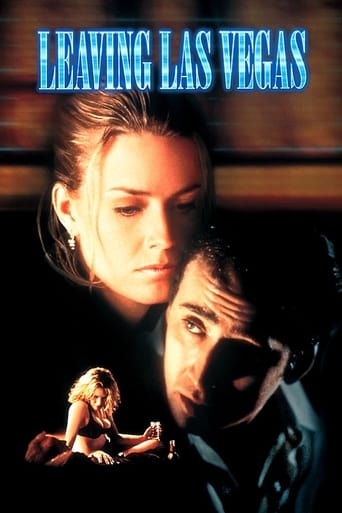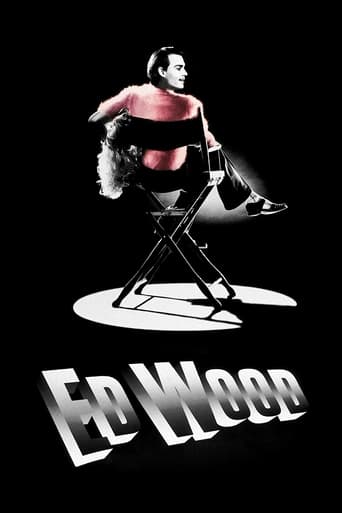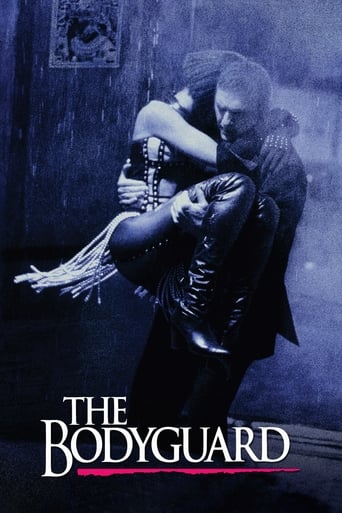A Woman Under the Influence (1974)
Mabel Longhetti, desperate and lonely, is married to a Los Angeles municipal construction worker, Nick. Increasingly unstable, especially in the company of others, she craves happiness, but her extremely volatile behavior convinces Nick that she poses a danger to their family and decides to commit her to an institution for six months. Alone with a trio of kids to raise on his own, he awaits her return, which holds more than a few surprises.
Watch Trailer
Cast


Similar titles
Reviews
Simply A Masterpiece
Powerful
It's easily one of the freshest, sharpest and most enjoyable films of this year.
The movie turns out to be a little better than the average. Starting from a romantic formula often seen in the cinema, it ends in the most predictable (and somewhat bland) way.
Gena Rowlands is cast as the woman under the influence of some undefined mental disorder. Her acting is superb; when the camera is in a close-up of her face, her chops are just better than anything I have seen. Her facial gestures, the eyes, furrowing of the brows, nose twitching, everything - is the best I have seen in an actor portraying emotions and thoughts without having to say too much. Wow.In my opinion, it was her husband, Nick (Peter Falk) who was the one who needed to be put away. He portrayed a man who was angry, and he was angry and violent throughout the movie, for the most part. Poor Mabel (Rowlands), she was at the mercy of his anger and emotionally did what she had to do to cope.But this was a different era; it was shown, through Cassavetes' writing and direction, that it was acceptable then, in some American blue-collar homes, to slap women around, threaten people, give children alcohol, as long as it was the man of the house doing it.How times have changed, and it was through movies like this, where bizarre social behavior that was on the borderline of acceptable in that era, may have been a catalyst for the audience to examine their own emotions and mores.
After watching this, I can say I am literally fascinated by John Cassavete's films. Although this is only my second experience with his directing, I can say I love the sense of reality and humanity he transmits through his characters. The first film I watched was "Shadows", where the movements of the camera give us the sensation of witnessing a real life story, and although the summary said it was about interracial relations, I thought it was really a film about people, simply.A Woman Under the Influence is not very different, for that matter. It's a film about something that happens every day, and it might even have happened to one of us, to someone we know. It's a film about incomprehension, in this case there is a "reason" for it (though it shouldn't be), Mabel has a psychotic personality structure - using the right Freudian term – but that kind of failure of communication might as well have happened to someone who is not psychotic, who is just a normal housewife, and I'm sure it has happened. Gena Rowland's performance is absolutely spectacular in what is certainly one of the best female roles in the history of cinema.I think we should begin from the common point, which is acknowledging that, having a psychotic personality organization does not necessarily mean you are mentally ill and cannot have a family and live a normal life. The neurotic organization was always socially accepted, and I guess it wouldn't be crazy to say it's a part of pop culture, having become popularized through countless characters, such as Woody Allen's. The problem with the psychotic is that, the only cases we hear of are those in which the person is involved in some sort of breakdown, and yes, it is likely that it will happen at some point, but it doesn't mean they have to be institutionalized. Mabel was an example of a well-adapted psychotic personality, I don't remember if it's shown whether she takes some sort of medication or not, but she supposedly had a family to back her over and was fine at home.What happens is that this family fails to understand her needs and simply refuses to listen to her. I'm not saying she was 100% happy as a housewife or that some kind of external and medical help isn't needed in some cases, but the episode that made Mabel's husband decide to commit her was far too ordinary to be taken so seriously. It shows total incomprehension from the husband and everyone else involved. Most of the time I thought Mabel was the sanest person in the movie, no kidding. Of course, these events take place in the 70's, when it was much more common for families to simply have their loved ones committed and be excused from all responsibility, placing the sickness only in the person who was supposed to be taken care of and loved in a moment of crisis.I didn't really understand the ending, though. Throughout the entire movie, we see Mabel struggling to have her voice heard and not being considered by her family, something that is shown especially in the dinner scene. Later on, Mabel and her husband have a final discussion where things seem to be just like they were before she went to the asylum, or even worse, and then the ending shows them reconciling. I thought it was too unreal for them to end fine after a physical fight and a suicide attempt. I wonder if John Cassavetes didn't want to go all the way or if he really took the previous events for granted and decided to have a lukewarm ending. One way or the other, I thought it was a great film.
A polarizing character study on the disparity between genders in tackling mental illness. Mabel is a young mother of three and wife to blue-collar worker Nick, who is desperately trying to keep up appearances while his relationship with his wife is falling apart. Despite Mabel's seemingly odd behaviour, she is a loving mother and her children adore her but one night Nick doesn't come home at night, and Mabel begins to fall apart at the seams. As her behaviour becomes increasingly bizarre, her relationships begins to crumble and Nick's frustration mounts as he struggles to get a handle on his family. Shot documentary-style, 'A Woman Under the Influence' is one of the most honest portrayals of 'group-think' culture and the intimate effects of gender inequality.
"A Woman Under the Influence" - like other Cassavetes films - is a difficult one to put into any specific drawer. Which is a good thing as it is able to push different buttons for different people and keeps the viewer on the edge of their seat and actively involved throughout. Not in the Hollywood kind of way, mind you, full with overblown drama, enhanced with musical cues and a heart-warming love story at the core, but rather in a way that makes you care, feel that it matters, that gets under your skin as a person, not just as a movie consumer. The main reasons why the film is so engaging and absorbing lies in the fact that it draws from convincingly portrayed lives rooted in a Seventies reality, the lives of a blue collar husband and a housewife with two kids. It's a familiar constellation with the ordinary domestic mayhem between troubles, challenges and duties, the need to show emotions and to suppress them at the same time, and there's always the urge to escape. It all comes down to a life on the edge, where people as partners in marriage are trapped in the confines of their everyday existence.On the surface "A Woman Under the Influence" is about a woman going mad and people in her environment having to deal with it. But thanks to the characterisations of Gena Rowlands (Cassavete's wife in the part of Mabel Longhetti) and Peter Falk (as her husband Nick) a rather simple story like this gets complex and multi-layered. Cassavetes delivers cinéma vérité the way it is meant to be. The film shamelessly shows us our fears, the emotional abysses between people, confronts us with the resulting traumas, all based on the influences we have on each other. It makes us suffer with both protagonists and their efforts, their eventual helplessness to deal with the situation, to find the common ground of the relationship. And in a struggle things go overboard. "Will you please stand up for me?" Mabel asks in one crucial scene, and if we don't judge first but listen, we might also hear what she's trying to say.

